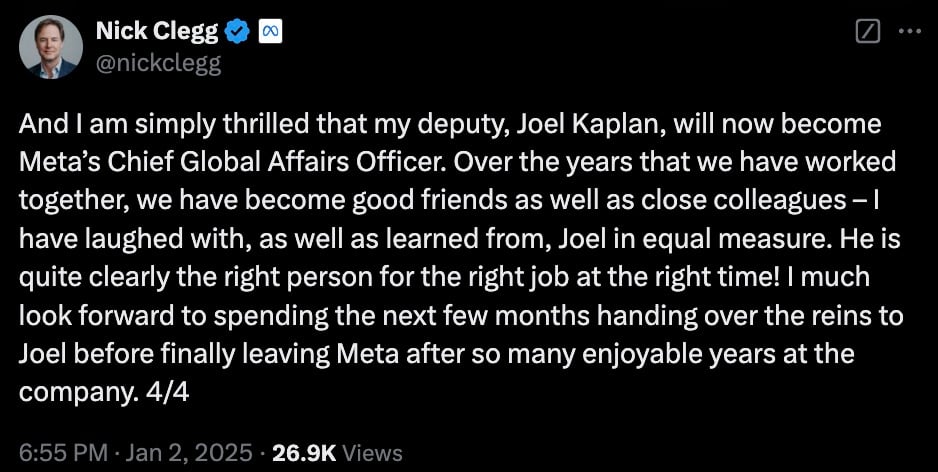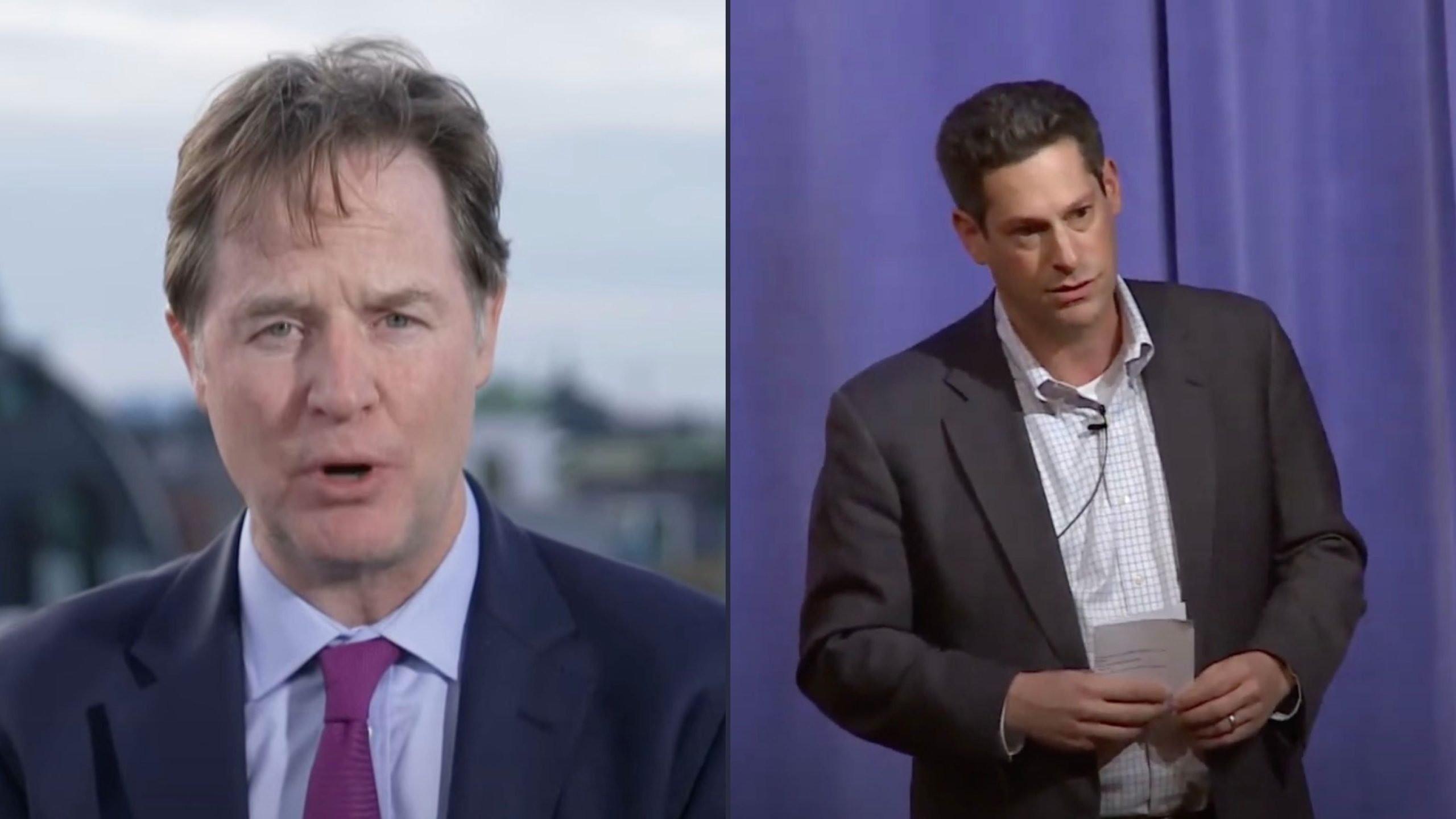Meta, the parent company of Facebook, Instagram, and WhatsApp, is undergoing a significant leadership transition as Nick Clegg steps down from his role as President of Global Affairs.
Clegg, a former Liberal Democrat UK Deputy Prime Minister, will be succeeded by Joel Kaplan, a prominent Republican and former White House Deputy Chief of Staff under George W. Bush. The timing of this change coincides with broader political realignments in the United States, as Donald Trump prepares to assume the presidency for a second term later this month.
Related: Meta’s Nick Clegg Admits Excessive Censorship and High Error Rates in Content Moderation
Clegg, who joined Meta in 2018, announced his departure in a reflective post on X, calling his tenure at the company “an adventure of a lifetime.” He praised his deputy and successor, Kaplan, as the ideal leader for the challenges ahead. “Joel is quite clearly the right person for the right job at the right time,” Clegg wrote, expressing confidence in Kaplan’s ability to steer Meta’s global affairs amid shifting societal and regulatory pressures.

Kaplan’s appointment could be seen as a signal of Meta’s evolving stance on political discourse. Known for some skepticism toward the company’s past restrictions on political speech, Kaplan’s rise to the top suggests that Meta may be recalibrating its policies to align with a less restrictive approach to free expression – though it’s difficult to give the company with such a long history of censorship the benefit of the doubt.
Known for his influence in addressing claims of political bias against conservatives, Kaplan has reportedly vetted changes to Facebook’s algorithms to ensure they do not disproportionately impact right-leaning voices. In 2018, Kaplan raised concerns about a proposed initiative called “Common Ground,” aimed at reducing polarization, leading to its shelving over fears it might appear biased against conservatives. This approach has sparked internal friction, with some employees and civil rights advocates accusing Kaplan of prioritizing business interests over the “protections” of “marginalized communities.” Critics, including Color of Change president Rashad Robinson, argue that Kaplan’s decisions contribute to systemic inequities on the platform.
While Kaplan has seldom spoken publicly about free speech, his actions reflect a commitment to avoiding perceived political bias, even as the company grapples with balancing free expression and content enforcement.
The leadership change also reflects the growing influence of politics on Silicon Valley. Mark Zuckerberg, Meta’s founder and CEO, was recently spotted dining with Trump at Mar-a-Lago.








